The Top and Bottom Documentaries of 2020
Like my list of the year’s best and worst in cinema coming a little late “this year,” so it is with my list of the best and worst in “2020’s” documentaries. But, then, as I wrote in this blog’s predecessor, this was unlike any other “year” that preceded it – especially since, based on distribution schedules, it ended up being longer than 12 months and included offerings whose release dates differed markedly from what was originally planned. That’s played havoc with what’s been made eligible for “2020” awards consideration, given that some haven’t come out until very recently (and some not in public distribution at all), while others originally debuted in 2019 but had their wide-scale distribution plans altered. And, even though I have seen most of this year’s major releases and awards contenders, in the interest of full disclosure, I must confess that there are some offerings I haven’t screened (and thus have not been considered in the compilation of this list).
So, with that said, here’s what made my Top 10 and Bottom 5 for “2020,” along with a short list of honorable mentions, including both domestic and foreign documentary offerings.
The Top 10 Countdown
10. “Galore” (Netherlands)

When plus-size Dutch drag queen Lady Galore (Sander den Baas) decides to undergo gastric bypass surgery to help improve the state of her health, she wonders whether the change in her body size and shape will affect how others have come to identify her. Will the persona she’s so carefully crafted disappear with the pounds she’s about to lose as a result of her procedure? Or will she be able to reinvent herself and maintain the level of visibility and popularity she’s already attained? This intimate documentary about her journey into a new life provides an intriguing look at a charismatic and caring individual who fights for dignity, self-respect and recognition for herself and her community, even through all the changes and challenges she undergoes. An inspiring and uplifting true life tale from directors Dylan and Lazlo Tonk.
9. “The New Bauhaus” (USA)
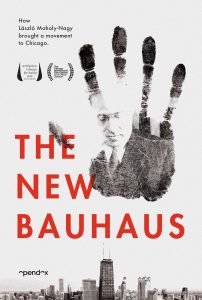
“The New Bauhaus” is a fitting cinematic tribute to László Moholy-Nagy, an underrated artist and visionary whose works and ideas influenced myriad aspects of the design world, changing our views on everything from architecture to consumer products. The film features plenty of examples of his creations and those of the designers and artists he influenced. Director Alysa Nahmias’s production includes extensive archive material showing rare footage of Europe in the days before his immigration, as well as ample still photos from the subject’s time at the New Bauhaus and the School of Design. A wealth of expert commentary is provided by Moholy-Nagy’s daughter, Hattula, along with observations from educators, art curators, historians and former students and quotes from Moholy-Nagy’s writings read by art historian Hans Ulrich Obrist. Aspects of the protagonist’s life chronology could be a little better organized, but the overall portrait painted here provides an in-depth look at the life of someone phenomenally influential but largely unknown.
8. “Nasrin” (USA)

“Courage under fire” is an expression that could best be used to describe Iranian human rights lawyer Nasrin Sotoudeh. The lion-hearted attorney has defiantly taken on a variety of cases defending women, children, religious minorities, persecuted artists and outspoken political reformers against overblown charges brought by a fundamentalist government regime seeking to suppress opposition at any cost, including instances involving blatant illegality, unethical conduct and outright lying. And, for her efforts, she has gained international notoriety but at a cost to herself, including imprisonment and physical torture. Director Jeff Kaufman’s superb documentary looks at Nasrin’s heroic life, chronicling the many challenges she has faced while unflinchingly depicting the stalwart defiance she has demonstrated in the face of odds frequently stacked against her. The filmmaker also candidly yet sensitively illustrates the counselor’s human side – her family life, her involvement in the arts community, and the heartfelt compassion she genuinely feels for her clients and causes – proof of the authenticity guiding her actions. Clandestinely shot in Iran under the threat of prosecution and narrated by Oscar winner Olivia Colman, “Nasrin” paints a truly remarkable portrait of a truly remarkable individual.
7. “The Capote Tapes” (USA/UK)
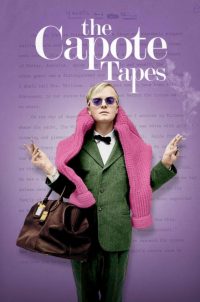
Flamboyant, openly gay author Truman Capote may not have been especially prolific, but he wrote several noteworthy, well-respected works. However, when excerpts of what was supposed to be his crowning achievement – the novel Answered Prayers about the dirty little secrets of New York high society based on the lives of a number of his “friends” – he became a pariah of sorts, losing contact with many of those close to him and triggering a speedy downward spiral in his health and well-being. In this new documentary, excerpts of recorded interviews with many of his friends and colleagues and new interviews with those who knew him and studied his work shed light on the enigmatic icon, his life and his writing, particularly with regard to his final and unfinished work. Included are archive segments featuring Lauren Bacall, Candice Bergen, George Plimpton, Norman Mailer, Lee Radziwill, Harper Lee, William F. Buckley and Capote’s partner Jack Dunphy, along with new conversations with author Jay McInerney, journalist Sally Quinn, Vogue editor André Leon Talley and talk show host Dick Cavett, among others. Director Ebs Burnough’s debut feature presents a captivating look at a talented, troubled and towering figure.
6. “Cured” (USA)
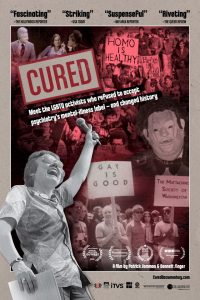
How do you cure millions of supposedly mentally ill people overnight? By publicly proclaiming that their “affliction” of homosexuality isn’t an affliction at all. So it was in 1973, when the American Psychiatric Association dropped being gay from its official list of mental maladies. It was a hard-fought victory in the LGBTQ rights movement, one that’s meticulously detailed in this superb documentary. This film features a wealth of interviews with those who were on the front lines, as well as ample archive footage depicting the key moments in the effort to win over the hearts and minds of those who blindly accepted an assessment for which there was no scientific basis to back it up. In addition to chronicling this seminal development, the film is a fitting tribute to many unsung heroes in the LGBTQ rights movement, giving them the accolades they have long deserved. Patrick Sammon and Bennett Singer’s fine offering is great viewing for those who believe in social justice, and it’s especially highly recommended for younger viewers in the LGBTQ community who may not – but need to – know their people’s history.
5. “Mr. Soul” (USA)
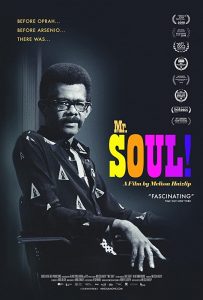
This excellent, informative and entertaining documentary about the NET (now PBS) series Soul! (1968-73) tells the captivating story about the first Afrocentric television show featured on a national network. As a showcase for Black talent, this groundbreaking program introduced the public to an array of rising stars in music, literature, poetry, dance, acting and activism, as well as prominent African-American figures in the arts, sports and politics. It gave the Black community a much-needed voice and paved the way for future Black programming, especially the likes of Oprah Winfrey and Arsenio Hall (who was himself featured on the show as a teenager). But, in addition to paying homage to the show, “Mr. Soul!” presents a fitting tribute to its creator and host, Ellis Haizlip, an openly gay African-American man (a genuinely rare commodity 50 years ago). His vision for the show, both in terms of celebrating the Black community and raising the bar for television quality, was truly radical and innovative for its time – or virtually any time in broadcast history for that matter. Those who have never heard of Haizlip or Soul! owe it to themselves to see this enlightening release.
4. “Kubrick by Kubrick” (France/Poland)
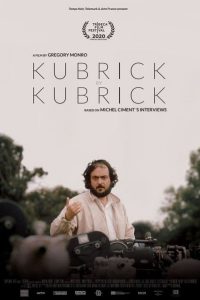
This positively superb documentary about the life and career of legendary director Stanley Kubrick not only does justice to the life of the artist, but also does justice to itself as a tremendous piece of filmmaking. Based on rare audio interviews with the auteur by writer Michel Ciment, director Gregory Monro’s homage to this iconic talent features a wealth of well-chosen clips from most of Kubrick’s pictures (“Paths of Glory” (1957), “Spartacus” (1960), “Dr. Strangelove” (1964), “2001: A Space Odyssey” (1968), “A Clockwork Orange” (1971), “Barry Lyndon” (1975), “The Shining” (1980), “Full Metal Jacket” (1987), “Eyes Wide Shut” (1999)). It also includes incisive archival interview footage with those who worked with him, including actors Jack Nicholson, Peter Sellers, Tom Cruise, Nicole Kidman, Sterling Hayden, Malcolm McDowell, Shelley Duvall and R. Lee Ermey, as well as behind-the-scenes crew members and noted film critics. The documentary’s impeccable editing and inventive production design link its various segments in ways that pay a fitting tribute to its subject’s work, reverently echoing Kubrick’s style and reinforcing the themes and perspectives that made his films so original and unforgettable. It may take some effort to find this offering, given that it has primarily played the film festival circuit, but, for fans of the filmmaker, this is absolute must-see material.
3. “The Dissident” (USA)
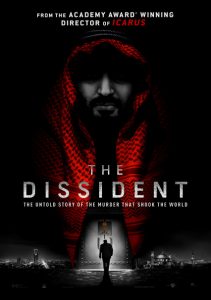
As much as we think we know about the gruesome, unimaginable murder and dismemberment of journalist Jamal Khashoggi at the Saudi Arabian consulate in Turkey, there’s more that we don’t, and it’s even more shocking than we ever thought. Director Bryan Fogel’s chilling documentary about the incident, what prompted it, and the fallout that has come from it – both politically and personally for those who knew him – is staggeringly infuriating. One can’t help but wonder how those behind this killing could be so unspeakably abhorrent, and all over differences in opinion and outlook about the scope of democracy in the writer’s homeland. The film approaches this story from multiple angles, showing how they’re interrelated and presenting them in a layered, progressive pattern that grows ever more damning and upsetting with each new revelation. This release is one that should make us all mad while we’re watching it. How can we allow such acts to continue in this day and age? If we can’t bring a halt to such atrocities, one can’t help but wonder what kind of future we might all have.
2. “Rebuilding Paradise” (USA)
Director Ron Howard, in a rare documentary effort, examines the impact of the deadly wildfire that destroyed nearly all of the historic California town of Paradise and the widespread fallout that has come in its wake. From terrifying footage of the fire as it burned (shot from inside the inferno) to the grim aftermath of its destruction to the valiant efforts of residents to rebuild their shattered lives, this heart-wrenching yet hopeful offering details the pain and suffering experienced by virtually everyone in the community, as well as their determination to rise from the ashes (literally and figuratively) in overcoming the many obstacles hindering the town’s rebirth. It’s rare that a documentary will move viewers quite as profoundly as this one does, evoking both tears and joy – and making us appreciate what we have and what we can lose in a heartbeat. Easily one of the best productions from the filmmaker in quite a long time.
1. “My Octopus Teacher” (South Africa)
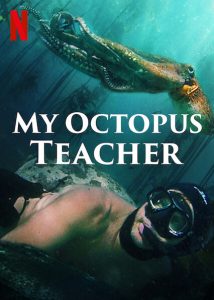
Who would have thought that we could learn anything meaningful from an undersea mollusk? Yet, if we’re willing to devote the time and effort to studying the miracles of nature, there’s no telling what we might glean from the experience, both about our subject and ourselves. Such is the odyssey of filmmaker and oceanic explorer Craig Foster, who spent a year studying and interacting (in a very heartfelt and personal way) with an octopus in an underwater kelp forest off the coast of South Africa. Gorgeously filmed and warmly narrated, this moving documentary from directors Pippa Ehrlich and James Reed shows us a world seldom seen, with insights never imagined about a creature we know of but know virtually nothing about. This is truly a cinematic labor of love, one richly deserving of its Oscar nomination and BAFTA award for best documentary feature.
Honorable Mentions
11. “All In: The Fight for Democracy” (USA)
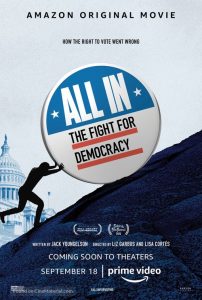
No matter where one stands politically, most of us (or so I would like to hope) believe in a sense of fairness when it comes to our elections. However, as this documentary from directors Lisa Cortes and Liz Garbus details, the country is increasingly under siege from a growing campaign to deliberately suppress voter rights in states across the nation, exposing the myriad techniques being employed by self-interested parties to achieve that result. In telling its story, the film chronicles the history of voter rights from the days of America’s birth through Reconstruction to the Jim Crow Era and eventually the Civil Rights Movement. The picture illustrates the efforts of various constituencies, from African-Americans to women to Asian-Americans and Latinos, in winning and protecting what’s widely considered one of the fundamental rights of living in a democracy. But it then goes on to show insidious initiatives to turn back the clock, as exemplified by a number of emerging state legislative and policy actions, most notably the tactics used to manipulate the outcome of the 2018 Georgia governor’s race and the efforts to derail the campaign of Democratic candidate Stacy Abrams. This offering thus presents a reasoned and damning look at voter suppression efforts, emphatically delivering an urgent message we all need to hear if we hope to preserve our republic. However, despite the importance of this, the film could stand to be less partisan and more even-handed in tone, especially when it comes to balancing its coverage of which states have implemented voter suppression measures, some of which have arisen in some seemingly unlikely jurisdictions, developments that have come in addition to those that have surfaced in more readily expected locales. What’s more, “All In” says virtually nothing about what needs to happen even if voter rights are sufficiently protected – ensuring that our elections produce victors who are actually able to do something to get the nation back on track once they’re in office. That could easily be a topic for another film, though one can’t deny this consideration is inherently tied to being able to cast our votes in the first place, and, on this point, the picture is silent. Still, I suppose we have to start somewhere, and preserving the opportunity to help bring about such an outcome is essential if we ever hope to have a chance to attain that larger goal.
12. “ʼTil Kingdom Come” (“Ad Sof HaOlam”) (Israel/UK/Norway)
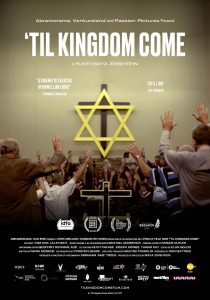
This simmering documentary about the unlikely bond between American Evangelicals and Israeli conservatives to manipulate policies aimed at fulfilling Biblical prophecy grows scarier with each passing minute. With an agenda of expediency and literal adherence to scripture wrapped around a fundamentally hypocritical core, the undertakings of this potentially calamitous alliance should make everyone shudder. Thankfully, director Maya Zinshtein’s incisive offering makes that abundantly clear. The film could have benefitted from a little more back story and the input of some additional experts, given its scant 76-minute runtime. However, what material is there is rock solid and hard-hitting, presented without judgment and letting the content speak for itself – which it does in volumes.
13. “House of Cardin” (USA/France)
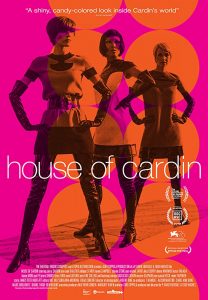
This rare look into the life and career of visionary designer Pierre Cardin provides an insightful review of how one man almost single-handedly changed the fashion industry and the marketing of name-based brands involving an array of product releases. In interviews with Cardin himself, as well as associates, fellow designers, and models and celebrities who wore his creations, viewers see how influential he was in such areas as “democratizing” the world of couture, bringing cross-cultural influences to clothing design, making fashion acceptable for male audiences and introducing modernism to a field that had previously been entrenched in conventionalism. While the film has an occasional tendency toward worshiping its subject, its treatment is generally reverent, respectful of his accomplishments and careful to avoid delving too deeply into private matters that are truly no one’s business. Directors P. David Ebersole and Todd Hughes have served up a delightful documentary for those who appreciate good design, no matter what form it comes in.
14. “17 Blocks” (USA)
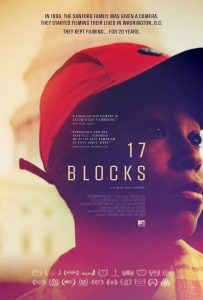
Culled from 20 years of raw video footage, this up-close look at a Washington, DC family afflicted by the perils of drug addiction and gun violence examines the challenges of dealing with temptation, fending off negative influences and seeking redemption. In doing so, this gripping documentary tells a story of questionable choices, profound heartbreak and the search for inspiration to turn things around. While the film sometimes comes across as a slice of life vehicle (especially at the outset), it definitely grows stronger with the passage of time, presenting material that’s increasingly more involving and heartrending as it proceeds. Director Davy Rothbart’s sensitive but uncensored look at a family in crisis deservedly earned a 2020 Independent Spirit Award nomination for the competition’s Truer Than Fiction Award, a quality that comes through loud and clear in this engaging offering.
15. “Crip Camp: A Disability Revolution” (USA)
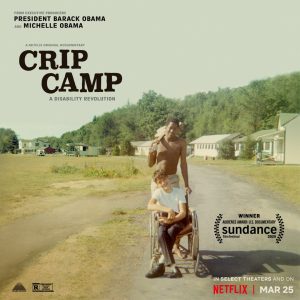
When the 1960s civil rights movement got into high gear, one constituency seeking equality felt left out – disabled Americans. But they were not to be denied, and they began finding their voice through a summer camp in the Catskills designed to enable them to experience the feelings of mainstream living. Drawing upon their time here, they would later adapt the lessons learned there to push for the equal rights that would eventually become embodied in the Americans with Disabilities Act, an initiative that would go on to have implications internationally. Through a wealth of archive footage and interviews with camp residents and counselors (many of whom were hippies and minorities, themselves seekers of reform and equal rights), directors James Lebrecht and Nicole Newnham tell this little-known story in a revealing and often quite surprising documentary, filled with an array of moments ranging from touching to heartbreaking to inspiring and even hilarious. However, for all its strengths, the film is not without its shortcomings, such as not enough linkage between camp life experience and the legacy it inspired, as well as some less-than-ideal selections of archive footage that seem more incidental than enlightening, material that could have easily been cut. Still, it’s indeed captivating to see what can emerge out of humble (and seemingly unrelated) beginnings, the film’s greatest asset of all.
16. “Stray” (USA)
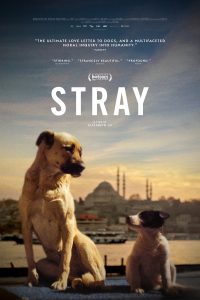
It’s the kind of movie that makes you go “awwwwwwwwwwwwww” about every 30 seconds. However, director Elizabeth Lo’s debut documentary feature about the street dogs of Istanbul – which are legally protected against euthanasia and illicit captivity – diverges from its central narrative a little too much, pursuing tangents that draw attention away from its principal subject. In particular, the film devotes considerable footage to the city’s homeless refugee workers, an attempt to draw parallels (and distinctions in treatment) between Istanbul’s street people and their canine companions, an intriguing approach that, while interesting, comes across as somewhat unfocused. The film might have fared better if it had either (1) sought to do for the city’s street dogs what “Kedi” (2016) did for its feral felines or (2) retooled the focus of what it seems to have been trying to depict. If you’re looking for a film loaded with loving footage of adorable pooches, “Stray” makes for a nice diversion. However, if you’re searching for groundbreaking documentary filmmaking, this one misses the mark somewhat, despite seemingly good intentions.
17. “Collective” (“Colectiv”) (Romania/Luxembourg/Germany)
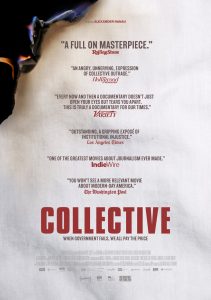
When a tragic 2015 fire in Bucharest’s Colectiv nightclub killed 64 and injured 143, with 37 of the victims dying after the fact, primarily from hospital infections, the event launched a sweeping investigation into the Romanian health care system. This revelation, which was brought to light by a team of reporters from a daily sports journal of all things, led to the dissolution of the government and a probing look into the nation’s hospital network, exposing system-wide corruption that had been in place long before the catalytic event that spurred this inquiry. “Collective” relates the unfolding of these events through unprecedented access to the journalists and reformers who sought to expose a system where patient care was secondary to the self-serving interests of politically connected administrators and their crooked affiliates. However, while director Alexander Nanau’s impressive and authentic documentary is indeed a remarkable piece of investigative journalism, its raw footage approach to the presentation of its material is often dry and talky, failing to stoke the kind of outraged emotional response that a work like this should handily accomplish. It thus plays more like a radio report on film than an engaging cinematic presentation, diluting much of the impact that its findings should generate. Sadly, the victims of this tragedy truly deserve more, not only from the government that let them down, but also from the vehicle through which their story was told.
The Bottom 5
5. “The Social Dilemma” (USA)
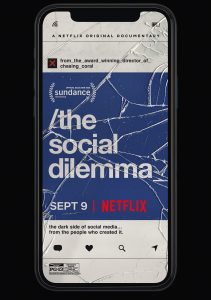
Though the cautionary tales here are noteworthy (especially for the younger and more impressionable users of social media), “The Social Dilemma” tends to sideline such personal attributes as choice and free will in presenting its arguments, as if we’re all too weak-willed to make decisions for ourselves. As a result, the absolutist nature of its contentions weakens their impact, suggesting that our behavior is unavoidably alterable and that we’re all ill-equipped to handle the compellingly manipulative forces of technology and an intrusive business model relentlessly driven by profits at all costs, both of which have been mercilessly thrust upon us. What’s more, the film under-emphasizes the human factor in the creation of these issues, generally placing blame more on the technology that drives them than on the individuals who initiated them, as well as on those (i.e., virtually all of us) who obviously lack the personal power to drag themselves away from these destructive influences. Through interviews with former social media and information technology experts, backed by fictionalized examples illustrating their assertions, director Jeff Orlowski’s documentary makes some valid points that we should all be aware of, but its dogmatic approach – despite the inclusion of some tangible and genuinely scary real world incidents – effectively removes us from the equation in being able to do anything about it. A handful of solutions is offered to address this social dilemma, and fleeting references to the benefits this technology has afforded are given passing acknowledgment, but the prevailing outlook is one that we’re all doomed by our inherent ignorance and an inability to protect ourselves from an impending horror. Personally, I refuse to give up that easily, and I’m troubled by a fear-mongering film that suggests resistance is futile. Responsibility is key, something this offering makes little allowance for.
4. “Myth of a Colorblind France” (USA)
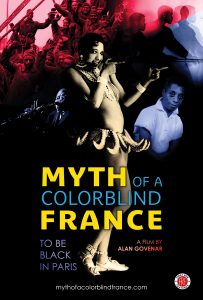
As a collection of anecdotes about expatriate African-Americans who found fame in France that they never would have found in the US (as well as the reasons behind that success), this documentary succeeds well. However, as a treatise on the subject that is the essence of the film’s title, the picture comes up woefully short, skimming the surface of this topic but never really delving into the meat of it. Viewers are treated to mere morsels of why the notion of French colorblindness is a myth, never really exploring the reasons for this in any great depth. In light of that, then, it seems that some retooling of this project – beginning with its essential premise – would have resulted in a much better film. To improve upon what’s here, the production would either have to focus more on what it already does best or get more serious about what the title promises it’s going to do.
3. “What She Said: The Art of Pauline Kael” (USA)
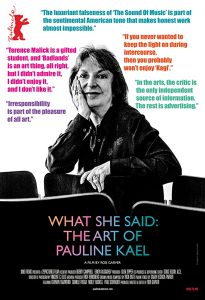
This cinematic homage to one of film criticism’s most influential – and controversial – representatives provides audiences with a passable overview of its subject, but it feels unsatisfyingly incomplete, never quite getting to the heart of the matter as effectively as it could have. We’re provided with the requisite biography, interviews with knowledgeable commentators and narrated snippets of the critic’s prose, but what’s lacking is a meaningful, coherently organized discussion of the motivations and sensibilities that drove her work. Instead, we’re given a scattershot buffet of passing observations, reminiscences of colleagues and those she wrote about, and anecdotes about specific films that she either liked or detested. Viewers come away from this offering never really grasping what drove Pauline Kael’s work and why, leaving a more than palpable and lingering sense of hunger, a disappointment given how significant a role she played in the field in which she became such a powerful influence.
2. “My Psychedelic Love Story” (USA)

To paraphrase the Grateful Dead, “What a long strange trip it was” (emphasis on the word “long”). Director Errol Morris’s protracted Showtime TV documentary about Joanna Harcourt-Smith, LSD guru Timothy Leary’s so-called “perfect woman,” tells the story of their time together at the height of the psychedelic era, including their globe-trotting days on the run from authorities to evade capture for drug law violations. While some of Harcourt-Smith’s stories are indeed entertaining and colorful, many of them ramble on endlessly, leaving viewers wondering if they have a point – or a conclusion. Meanwhile, others are so outlandish that they stretch credibility and come across more like tall tales, a possibility that’s not entirely improbable given Harcourt-Smith’s own admission to having been a chronic liar in her youth. Ultimately, though, much of this film just isn’t particularly interesting, a collection of essentially insignificant anecdotes that don’t shed any revelatory light on the principals, the era in which they lived or their legacies. It seems like this material could have provided rich fodder for an engaging picture, but it instead presents little more than a name-dropping counterculture tell-all, the kind of story swapping to come out of a conclave of aging hippies.
1. “Cold Case Hammarskjöld” (Denmark/Norway/Sweden/Belgium)
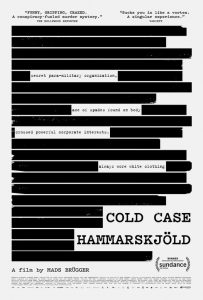
This “documentary” investigating the death (i.e., likely assassination) of former UN Secretary General Dag Hammarskjold in a mysterious 1961 plane crash shamelessly blurs the line between legitimate journalism and cheeky speculation, with consequences that extend far beyond the demise of one individual. What starts out seeming like a valid inquiry into a long-unsolved mystery regrettably degenerates into a questionable spectacle that doesn’t seem to take its own purpose seriously, prompting viewers to ask, “So what’s the point of all this?” While the film does uncover what could be a horrific untold story if definitively proven true, the credibility of the information underlying such a possibility is undercut by a filmmaker who could ultimately just be jagging everybody’s chain – and with material that’s no joking matter. And the problem with that is, should viable evidence ever surface behind the truth of these incidents, it’s likely to be discounted by the travesty depicted here.
Copyright © 2020-2021, by Brent Marchant. All rights reserved.



